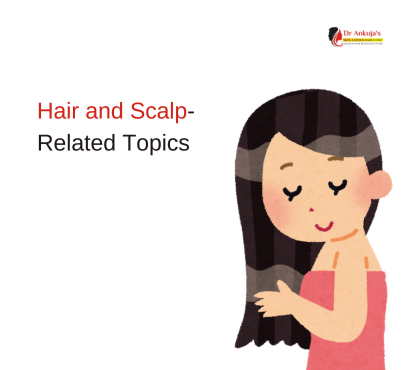Healthy hair starts at the scalp, but for many, issues like hair loss, itching, and flakiness disrupt confidence and day-to-day comfort. India’s climate, genetics, and lifestyle bring unique challenges—and unique solutions. Here is a comprehensive, human-written guide on common hair and scalp problems, causes, treatments, and best practices for lifelong healthy hair.
Common Hair and Scalp Problems in India
1. Hair Fall and Thinning
- Reasons: Genetics (androgenetic alopecia), hormonal changes, stress, poor nutrition, pollution, frequent use of heat styling tools, chemical treatments, and tight hairstyles.
- Symptoms: Gradual thinning, widening of part, excessive hair shed after washing or combing, receding hairline.
2. Dandruff and Seborrheic Dermatitis
- Reasons: Overgrowth of yeast (Malassezia), oily scalp, poor hygiene, stress, or hormonal imbalances.
- Symptoms: Itching, flakiness, visible scales on the scalp, sometimes associated with hair fall.
3. Split Ends and Hair Breakage
- Reasons: Heat styling, over-brushing, sun exposure, harsh shampoos or chemical treatments, environmental damage.
- Symptoms: Hair feels brittle, dry; visible splits at the ends.
4. Scalp Itchiness and Tenderness
- Possible causes include allergic reactions, lice, ringworm, or even scalp psoriasis.
5. Fungal and Parasitic Disorders
- Tinea Capitis: Fungal infection seen more in children, causing round patches, scaling, hair loss.
- Head Lice: Common among school-going children, causing itching, small red bumps, visible nits.
6. Autoimmune Hair Disorders
- Alopecia Areata: Immune attack on hair follicles leading to sudden, patchy hair loss.Scarring Alopecia:
- Inflammatory processes permanently destroy follicles, needing rapid intervention.
Diagnosing Scalp and Hair Problems
- History: Onset, duration, family history, trigger events (stress, illness).
- Examination: Scalp mapping, hair pull test, skin scraping for fungi, blood tests for deficiencies.
- Special tests: Dermoscopy, biopsy (if autoimmune/scarring suspected), thyroid or hormone panel for systemic causes.
Causes: A Closer Look
| Factor | Impact |
| Genetics | Predisposes male/female pattern hair loss |
| Age | Natural thinning, slower growth |
| Nutrition deficiencies | Iron, vitamin D, biotin, protein |
| Hormonal changes | Menopause, thyroid disorders |
| Lifestyles/habits | Stress, tight hairstyles, heat tools |
| Medical conditions | PCOS, diabetes, scalp eczema/psoriasis |
| Medications | Chemotherapy, steroids, vitamin A excess |
| Environmental exposure | UV rays, pollution, water quality |
Treatment Strategies and Daily Care
General Principles
- Gentle cleansing: Use sulfate-free, pH-balanced shampoos as per hair type—avoid daily washing with harsh chemicals.
- Diet: Add proteins (eggs, nuts, paneer), iron-rich greens, vitamin D via sun or supplements, omega-3 via flaxseed/walnuts.
- Scalp Massage: Improves blood flow, relieves tension, may boost hair growth—use natural oils (coconut, amla, bringaraj).
- Protect from Heat/Styling: Limit heat styling; use protectant spray; avoid tight braids or ponytails.
- Avoid Harsh Chemical Treatments: Frequent coloring, bleaching, straightening weaken cuticle, invite splits/breakage.
- Regular Trims & Gentle Detangling: Prevent split ends, reduce knots—use wide-tooth comb on damp hair.
Medical Management
- For Dandruff/Seborrheic Dermatitis: Targeted anti-fungal or medicated shampoos (ketoconazole, zinc pyrithione, tar-based).
- For Hair Loss: Topical minoxidil, oral finasteride (men), PRP therapy, correcting deficiencies.
- For Alopecia Areata: Steroid creams/injections, immunotherapy, consultation for systemic management.
- For Infections: Anti-fungal or anti-lice medication, maintaining hygiene especially for children.
- Consult Specialist: Trichologist/dermatologist review for persistent, unexplained, or scarring hair loss.
Scalp and Hair Care: Best Practices for Indian Hair
- Wash 2–3 times weekly with mild shampoo suited to your scalp type
- Massage with coconut/ayurvedic hair oils for nourishment, avoid very hot water
- Condition after shampooing, focus on ends, detangle gently
- Avoid daily use of heat tools and harsh chemicals; prioritize natural hairstyles
- Maintain balanced diet, hydrate well
- Protect hair and scalp from sun and urban pollution
- Seek professional advice for sudden, unexplained, or progressive hair issues
FAQ
- Why are so many Indians experiencing premature hair loss and scalp problems?
Rising stress, sedentary lifestyles, nutritional gaps, pollution, and late nights all play a role. Hair product overuse, chemical styling, and tight hairstyles compound problems. Early intervention and holistic routines can help. - Is hair loss always permanent, and when should I worry?
Not always—hair lost from stress, deficiency, or short-term illness often regrows with proper care. If you notice rapid thinning, bald patches, scaling, or persistent shedding, consult a dermatologist early as some forms (like androgenetic or scarring alopecia) need targeted treatment. - Can natural remedies help regrow hair and improve scalp health?
Diet, scalp massage, and gentle herbal hair oils (coconut, bringaraj, amla) may improve hair quality and regrowth for mild cases. Persistent or severe disorders need evidence-based therapies.

